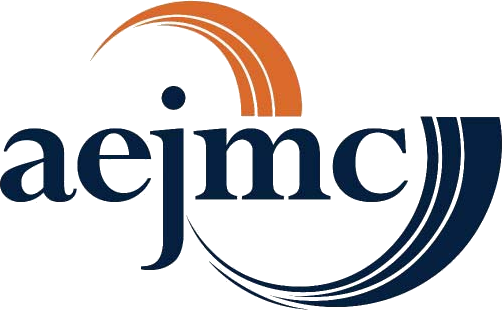AEJMC & ASJMC support the Protect Reporters from Exploitative State Spying (PRESS) Act introduced in U.S. Congress
July 24, 2023
Contact: Deb Aikat, UNC Chapel Hill, 2022-23 AEJMC President or
Raul Reis, UNC Chapel Hill, 2022-23 ASJMC President
Association of Schools of Journalism and Mass Communication (ASJMC)
and Association for Education in Journalism and Mass Communication (AEJMC)
We, the boards of directors of the Association for Education in Journalism and Mass Communication (AEJMC) and the Association of Schools of Journalism and Mass Communication (ASJMC), support the Protect Reporters from Exploitative State Spying (PRESS) Act. While 48 states and the District of Columbia have some form of a shield law or reporter’s privilege, the protections vary widely from state to state. There is currently no federal shield law.
The PRESS Act empowers the media to play its essential role as a watchdog holding our government accountable. The bill would protect the free flow of information against government overreach. Specifically, the PRESS Act would shield journalists from court-ordered disclosure of information about a source and what the source told them unless disclosure of the protected information is necessary to prevent, or to identify any perpetrator of, an act of terrorism against the United States, or necessary to prevent the threat of imminent violence, significant bodily harm, or death, including specified offenses against a minor.
The PRESS Act as introduced by Senators Dick Durbin, Mike Lee, and Ron Wyden in the U.S. Senate and Representatives Jamie Raskin and Kevin Kiley in the House of Representatives directly links to free expression, which is one of the five core areas of Professional Freedom and Responsibility of AEJMC.
In issuing this statement today, AEJMC stands with our colleagues in the News/Media Alliance, Reporters Committee for Freedom of the Press, the Radio Television Digital News Association, and the National Association of Broadcasters, all of whom have endorsed the PRESS Act.
AEJMC members will actively advocate for the passage of the PRESS Act by contacting representatives in Congress. We will also educate the next generation of journalists about the importance of such federal legislation to support the work of a journalist.
Association for Education in Journalism and Mass Communication (AEJMC)
 The Association for Education in Journalism and Mass Communication (AEJMC) is a nonprofit organization comprised of educators, students and practitioners from around the globe. Founded in 1912, by Willard Grosvenor Bleyer, the first president (1912-13) of the American Association of Teachers of Journalism, as it was then known, AEJMC is the oldest and largest alliance of journalism and mass communication educators and administrators at the college level. AEJMC’s mission is to promote the highest possible standards for journalism and mass communication education, to encourage the widest possible range of communication research, to encourage the implementation of a multi-cultural society in the classroom and curriculum, and to defend and maintain freedom of communication in an effort to achieve better professional practice, a better-informed public, and wider human understanding.
The Association for Education in Journalism and Mass Communication (AEJMC) is a nonprofit organization comprised of educators, students and practitioners from around the globe. Founded in 1912, by Willard Grosvenor Bleyer, the first president (1912-13) of the American Association of Teachers of Journalism, as it was then known, AEJMC is the oldest and largest alliance of journalism and mass communication educators and administrators at the college level. AEJMC’s mission is to promote the highest possible standards for journalism and mass communication education, to encourage the widest possible range of communication research, to encourage the implementation of a multi-cultural society in the classroom and curriculum, and to defend and maintain freedom of communication in an effort to achieve better professional practice, a better-informed public, and wider human understanding.
Association of Schools of Journalism and Mass Communication (ASJMC)
 ASJMC is a non-profit, educational association composed of some 190 JMC programs at the college level. The majority of the association’s members are in the United States and Canada. ASJMC promotes excellence in journalism and mass communication education. Founded in 1917, ASJMC works to support the purposes of schools of journalism and mass communication in order to achieve the following goals: to foster, encourage and facilitate high standards and effective practices in the process and administration of education for journalism and mass communication in institutions of higher learning; to cooperate with journalism and mass communication organizations in efforts to raise professional standards and promote a public understanding of the role of journalism and mass communication in a democratic society; and to support and participate in the accreditation process of journalism and mass communication units through the Accrediting Council on Education in Journalism and Mass Communications (ACEJMC).
ASJMC is a non-profit, educational association composed of some 190 JMC programs at the college level. The majority of the association’s members are in the United States and Canada. ASJMC promotes excellence in journalism and mass communication education. Founded in 1917, ASJMC works to support the purposes of schools of journalism and mass communication in order to achieve the following goals: to foster, encourage and facilitate high standards and effective practices in the process and administration of education for journalism and mass communication in institutions of higher learning; to cooperate with journalism and mass communication organizations in efforts to raise professional standards and promote a public understanding of the role of journalism and mass communication in a democratic society; and to support and participate in the accreditation process of journalism and mass communication units through the Accrediting Council on Education in Journalism and Mass Communications (ACEJMC).
 Print friendly
Print friendly






